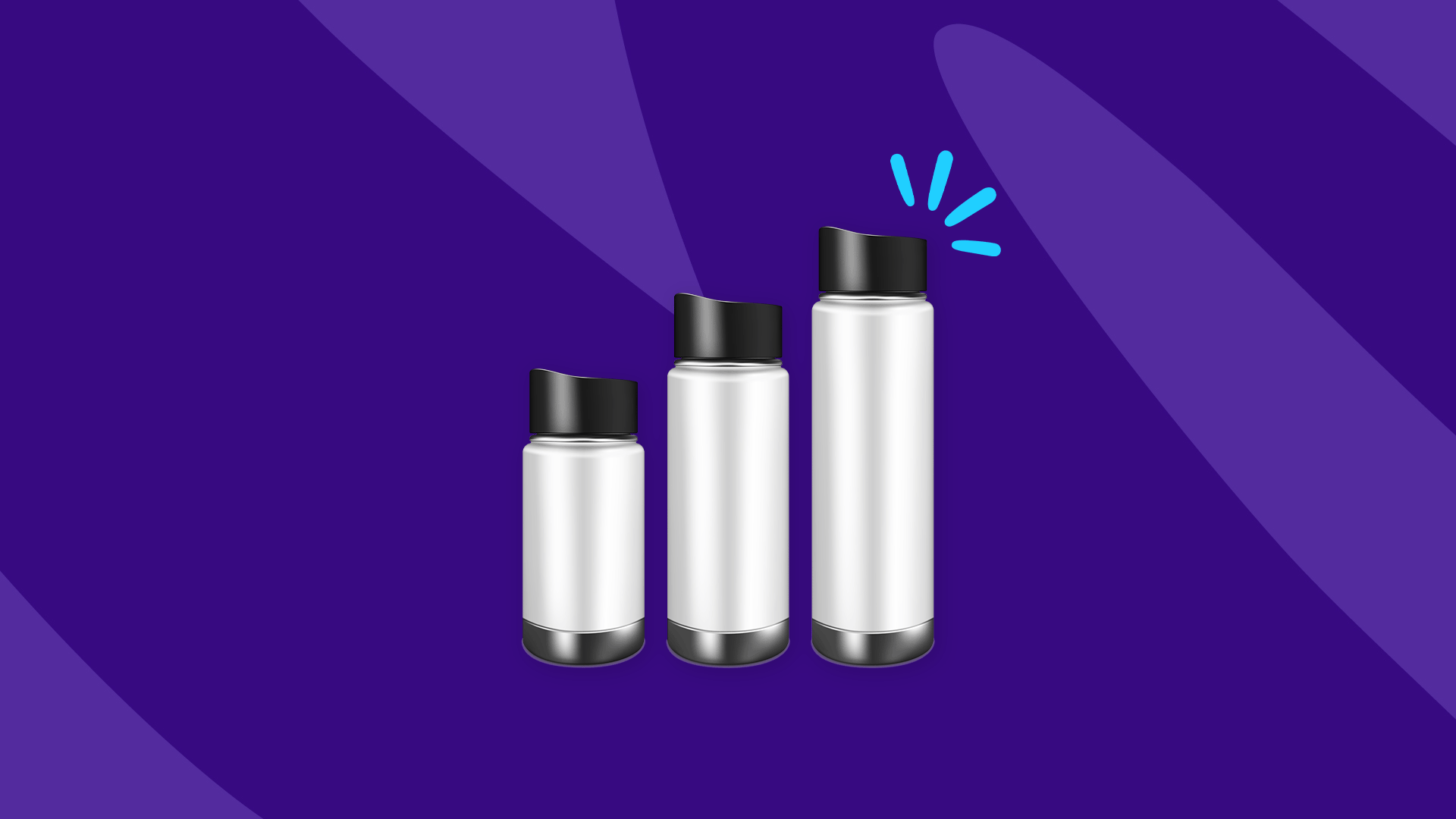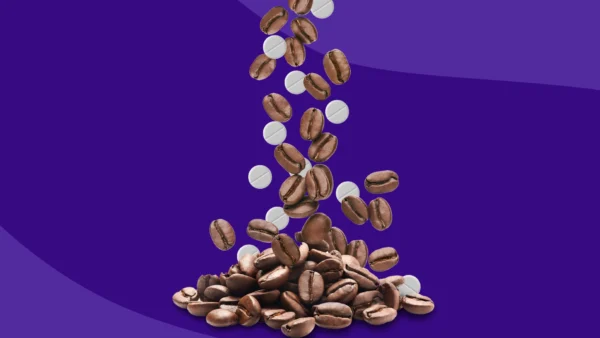Hydrochlorothiazide (brand name Microzide) is a thiazide diuretic commonly prescribed for the treatment of high blood pressure (hypertension). It can also be used to treat fluid retention (edema) caused by various medical conditions, such as heart failure, liver disease, or certain medications. Hydrochlorothiazide can be prescribed on its own or in combination with other medications.
Like other diuretics, or water pills, hydrochlorothiazide works by increasing urination to help remove water and salt from the body. The increase in frequency and amount of urination can put you at risk for dehydration and may leave you wondering, “How much water should I drink while on hydrochlorothiazide?”
Here, learn the recommendation for water intake, as well as common dosages, potential side effects, and alternative treatments for hydrochlorothiazide.
How much water should I drink while on hydrochlorothiazide?
Diuretics, such as hydrochlorothiazide, can lead to or worsen dehydration due to the increase in urination. As a result, it’s important to drink enough fluids to prevent dehydration from occurring, although the specific recommended amount will vary.
But don’t start chugging water quite yet, because it’s not always recommended to increase your water intake while on hydrochlorothiazide. In fact, individuals with certain conditions, such as congestive heart failure, may be instructed to reduce their fluid intake—although it’s still important to drink enough to prevent dehydration.
“Because hydrochlorothiazide works at the level of the kidney and part of its mechanism is to make you urinate more, it’s important to remain hydrated,” says Jordan Spencer, DO, a resident physician at the Medical University of South Carolina. “Although there’s no specific guideline for water intake while on hydrochlorothiazide, I generally recommend that patients follow the general recommendations for total water intake from the U.S. National Academies of Sciences, Engineering, and Medicine as a starting place. I also urge patients to be more mindful of situations where they can become dehydrated; for example, hot weather, vomiting, or persistent diarrhea.”
Total water takes into account everything you consume, including water from other beverages, food, and drinking water. According to the U.S. National Academies of Sciences, Engineering, and Medicine, the recommended total water intake, including while taking hydrochlorothiazide, is:
- Men aged 19+: 3.7 liters per day, which includes approximately 3.0 liters (about 13 cups) of total beverages
- Women aged 19+: 2.7 liters per day, which includes approximately 2.2 liters (about 9 cups) of total beverages
- Pregnant women: 3.0 liters per day, which includes approximately 2.3 liters (about 10 cups) of total beverages
- Lactating women: 3.8 liters per day, which includes approximately 3.1 liters (about 13 cups) of total beverages
Ramandeep Sidhu, MD, a board-certified vascular surgeon and founder of Vein, Vascular, Primary Care & Aesthetic Associates in Washington agrees: “Be mindful of how much fluid you consume—in some circumstances, drinking too much can be just as hazardous as not getting enough.”
Talk to your healthcare provider about how much water you should drink while on hydrochlorothiazide. They will be able to make the determination based on your medical history and hydrochlorothiazide dosage.
Hydrochlorothiazide dosage for water retention
Hydrochlorothiazide is available in tablet form (as 12.5 mg, 25 mg, or 50 mg tablets) and a capsule form (12.5 mg). To limit side effects or other complications, it’s recommended to use the smallest dose possible, while still achieving the desired results. Although your prescription will be individualized, the following are standard dosage guidelines, according to the Food and Drug Administration (FDA):
- Adults with hypertension: 25–50 mg, daily
- Adults with edema: 25–100 mg, daily
- Infants and children: 0.5–1 mg per pound, per day (not to exceed 37.5 mg per day in children younger than 2 years of age or 100 mg per day in children 2–12 years of age)
“In most cases, adult patients with hypertension will start with 12.5 mg and then increase to 25 mg,” Dr. Spencer says. “We sometimes go up to 50 mg; however, there is evidence that shows that we tend to get more side effects than benefits when we increase the dose past 25 mg.”
“For patients struggling with water retention, a higher dose is often more effective; however, as previously mentioned, when we go past 25 mg, we frequently find that it creates more side effects than benefits,” Dr. Spencer adds. “In this case, your doctor may prescribe you a loop diuretic in addition to your hydrochlorothiazide, which would help relieve a noticeable amount of water.” Patients who take both types of diuretics will need close monitoring of kidney function, sodium and potassium levels, and blood pressure.
For water retention, your healthcare provider may also instruct you to take hydrochlorothiazide every other day or on certain days each week, a practice known as intermittent therapy.
It’s important to take your medication as prescribed and maintain routine visits with your healthcare provider while taking hydrochlorothiazide. They will check your blood pressure and perform blood tests to ensure the medication is working as it should, with minimal side effects. Do not stop taking your medication without first discussing it with your healthcare provider. They will adjust your prescription as needed.
Side effects of hydrochlorothiazide
Similar to other medications, hydrochlorothiazide can cause side effects in some individuals, including fluid and electrolyte imbalances—such as low sodium, magnesium, and potassium levels. Monitor your side effects and inform your healthcare provider of any that are severe or persist more than a few days.
Common side effects of hydrochlorothiazide include:
- Frequent urination
- Diarrhea
- Dizziness upon standing
- Loss of appetite
- Headache
- Hair loss
- Muscle cramps or pain
Contact a healthcare professional immediately if you experience any severe side effects, which may include:
- Extreme thirst or dry mouth
- Decreased urine
- Unusual weakness or drowsiness
- Nausea or vomiting
- Confusion
- Unexplained bruising or bleeding
- Peeling or blistering skin
- Hives or rash
- Trouble breathing or swallowing
- Increased heart rate or irregular heartbeats
- Low blood pressure
- Changes in vision or other eye concerns, such as eye pain, swelling, or redness
Avoid alcohol while taking hydrochlorothiazide. Drinking alcohol can worsen side effects and cause dizziness, fainting, or irregular heartbeats. If you experience any severe side effects, seek medical advice immediately.
Hydrochlorothiazide alternatives
Hydrochlorothiazide may not be the best choice for everyone. You may have to work with your healthcare provider to find a medication and dose that works for your situation.
Before starting hydrochlorothiazide, review the drug information and inform your healthcare provider if you:
- Have had an allergic reaction to hydrochlorothiazide or sulfa drugs in the past
- Are unable to urinate
- Are pregnant, plan to become pregnant, or are breastfeeding
- Have liver disease, heart disease, heart failure, high cholesterol, diabetes, gout, lupus, kidney disease, or other kidney problems.
Drug interactions could occur while taking hydrochlorothiazide, so you should inform your healthcare provider of any medications you‘re taking, including over-the-counter and prescription drugs, as well as any supplements. This may include:
- Nonsteroidal anti-inflammatory drugs (NSAIDs), such as ibuprofen or naproxen
- Bile acid resin cholesterol medications, such as cholestyramine or colestipol
- Diabetes medications, such as insulin or oral diabetes medications
- Steroid medication, such as hydrocortisone or prednisone
Fortunately, there are a variety of alternatives that may work better for your situation, depending on the primary reason for your hydrochlorothiazide prescription. Your healthcare provider may consider other types of medication, including:
- Other diuretics, including other thiazide diuretics, loop diuretics, or potassium-sparing diuretics
- Beta-blockers
- Angiotensin-converting enzyme (ACE) inhibitors
- Angiotensin II receptor blockers (ARBs)
- Calcium channel blockers (CCBs)
- Alpha adrenergic antagonists, or alpha-blockers
- Combined alpha and beta-blockers
Compare hydrochlorothiazide alternatives |
|||
|---|---|---|---|
| Drug name | Type of drug | Uses | Savings options |
| Microzide (hydrochlorothiazide) | Thiazide diuretic |
|
Hydrochlorothiazide coupons |
| Diuril (chlorothiazide) | Thiazide diuretic |
|
Diuril coupons |
| Lasix (furosemide) | Loop diuretic |
|
Lasix coupons |
| Bumex (bumetanide) | Loop diuretic |
|
Bumetanide coupons |
| Amiloride hydrochloride | Potassium-sparing diuretics |
|
Amiloride Hcl coupons |
| Aldactone (spironolactone) | Potassium-sparing diuretics |
|
Aldactone coupons |
| Tenormin (atenolol) | Beta-blocker |
|
Tenormin coupons |
| Lotensin (benazepril hydrochloride) | Angiotensin-converting enzyme (ACE) inhibitor |
|
Lotensin coupons |
| Atacand (candesartan cilexetil) | Angiotensin II receptor blocker (ARB) |
|
Atacand coupons |
| Lotrel (amlodipine -benazepril) | Calcium channel blocker/ACE inhibitor combination |
|
Lotrel coupons |
| Cardura (doxazosin mesylate) | Alpha-blocker |
|
Cardura coupons |
| Coreg (carvedilol) | Combined alpha and beta-blocker |
|
Coreg coupons |
If you feel that hydrochlorothiazide is not right for you, talk to your healthcare provider about which medications are an acceptable alternative and their possible side effects and drug interactions.
Natural alternatives for hydrochlorothiazide
There are natural remedies that could help improve your condition. In some cases, this could result in a reduced dosage or eliminating the need for hydrochlorothiazide completely. However, doing these things is not a substitute for medicine, so do not stop taking your medication unless your healthcare provider tells you to do so.
Lowering your blood pressure can often be done with lifestyle changes, including:
- Following a healthy diet
- Losing weight
- Exercising regularly
- Reducing caffeine intake
- Limiting alcohol consumption
- Avoiding nicotine
- Avoiding recreational drugs
- Getting quality sleep
Natural remedies for decreasing water retention include:
- Elevating your legs on pillows above the heart while lying down
- Using compression stockings (but do not wear tight-fitting garments around the thighs)
- Alternating sitting and standing throughout the day
- Moving the affected body parts
- Reducing salt intake
- Losing weight
Your healthcare provider will likely recommend you practice these natural remedies as a supplement to your prescription medication—not instead of your medicine. However, if you’re experiencing side effects that you don’t feel you can manage, or feel that your hydrochlorothiazide prescription may not be right for you, talk to your healthcare professional about your concerns immediately. They will help you find a treatment that works for you, which is important for increasing medication adherence and improving your overall health.











